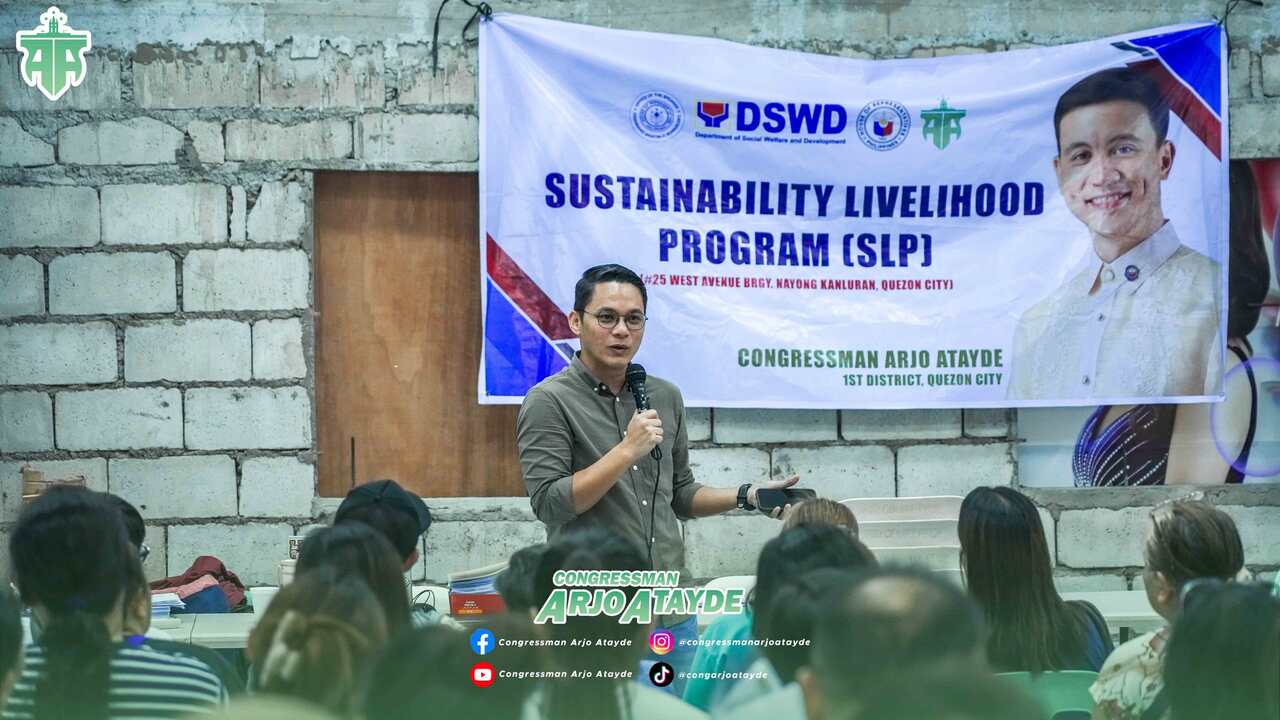In the Philippines, a range of financial assistance programs are available to support solo parents in managing their responsibilities and improving their quality of life. These programs are designed to address the unique challenges faced by single-parent households, offering essential resources that include cash assistance, livelihood support, educational scholarships, and healthcare coverage. By providing targeted aid, these initiatives aim to alleviate poverty and promote the well-being of both solo parents and their children.
The Expanded Solo Parents Welfare Act further enhances these benefits by broadening eligibility criteria and increasing financial support for solo parents. This law includes provisions for automatic enrollment in health insurance, monthly cash subsidies, educational scholarships for children, and additional parental leave policies, ensuring comprehensive support that addresses the diverse needs of solo parents across the country.
What are Solo Parents
Solo parents refer to any individual who meets specific criteria regarding their parenting situation. This includes women who give birth due to rape or other crimes against chastity, regardless of the offender’s conviction status, provided they raise the child. Other qualifying conditions include being left alone due to the death of a spouse, legal separation, abandonment, or the spouse’s imprisonment for at least one year, as well as circumstances involving physical or mental incapacity.
Additionally, solo parents can be unmarried individuals who choose to raise their children themselves rather than placing them in care or welfare institutions. This definition also encompasses any individual who provides sole parental care and support or family members who step in as head of the household due to the absence or inability of the parents. These classifications recognize the diverse situations that can lead to single parenthood, highlighting the need for support tailored to their unique challenges.
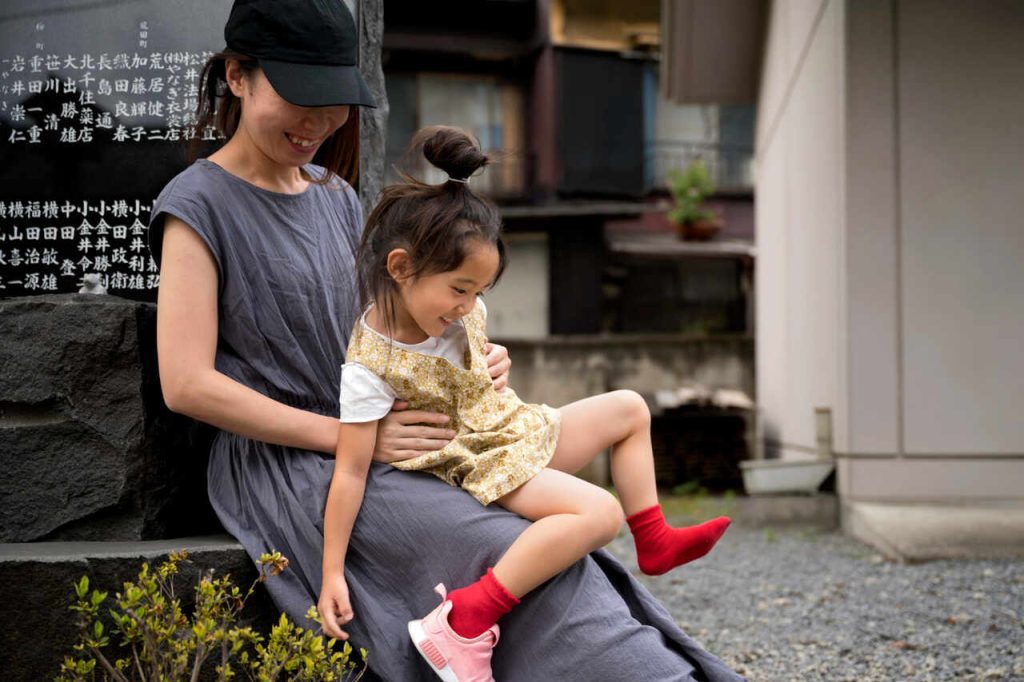
Expanded Solo Parents Welfare Act (RA 11861)
The Expanded Solo Parents Welfare Act, is a government initiative signed into law on June 4, 2022, to enhance the benefits for solo parents. It essentially broadened the eligibility criteria and increased the financial support for the solo parents. It also includes provisions such as a monthly cash subsidy of ₱1,000 for minimum wage earners, automatic enrollment in health insurance, educational scholarships for children, and expanded parental leave policies. This law aims to provide comprehensive support that addresses the diverse needs of solo parents, ensuring they have access to essential resources that promote their well-being and that of their children.
Types of Assistance Available to Solo Parents in the Philippines
In the Philippines, various financial assistance programs are available to support solo parents in managing their responsibilities and improving their quality of life. These programs are designed to address the unique challenges faced by single-parent households, providing essential resources ranging from cash assistance to educational support. Below is a categorized list of these programs, along with an overview of the Expanded Solo Parents Welfare Act, which enhances the benefits available to solo parents.
- Cash Assistance Programs: Cash assistance programs provide direct financial support to solo parents to help them meet their basic needs. These programs aim to alleviate poverty and improve the quality of life for single-parent households by offering monthly allowances or conditional cash transfers.
- Livelihood and Employment Support: These programs focus on enhancing the economic stability of solo parents through skills development and employment opportunities. They aim to empower participants to generate sustainable income by providing training and resources for entrepreneurship or job placement.
- Educational Assistance: Educational assistance programs are designed to help solo parents and their children access higher education. They provide scholarships and financial support to ensure that educational opportunities are available, promoting long-term self-sufficiency.
- Health Insurance and Medical Support: Health insurance programs provide comprehensive medical coverage for solo parents and their children. These initiatives ensure access to essential healthcare services, including regular check-ups and medical procedures, reducing the financial burden of healthcare costs.
- Housing Assistance: Housing assistance programs offer affordable housing solutions for low-income solo parents. They prioritize access to public housing projects with flexible payment terms, ensuring that single-parent families have stable living conditions.
- Psychosocial Support Services: Psychosocial support services focus on the emotional well-being of solo parents and their children. These programs provide counseling, skill-building opportunities, and community support to help solo parents navigate challenges related to parenting and personal development.
- Discounts and Tax Exemptions: Discounts and tax exemptions help reduce the cost of essential goods for solo parents. These benefits are aimed at easing the financial burden associated with raising children by providing discounts on specific child-related products.
Here is a comprehensive list of the actual financial assistance programs available for solo parents in the Philippines:
1. Solo Parent Cash Assistance Program (SPCA)
Provider: Department of Social Welfare and Development (DSWD)
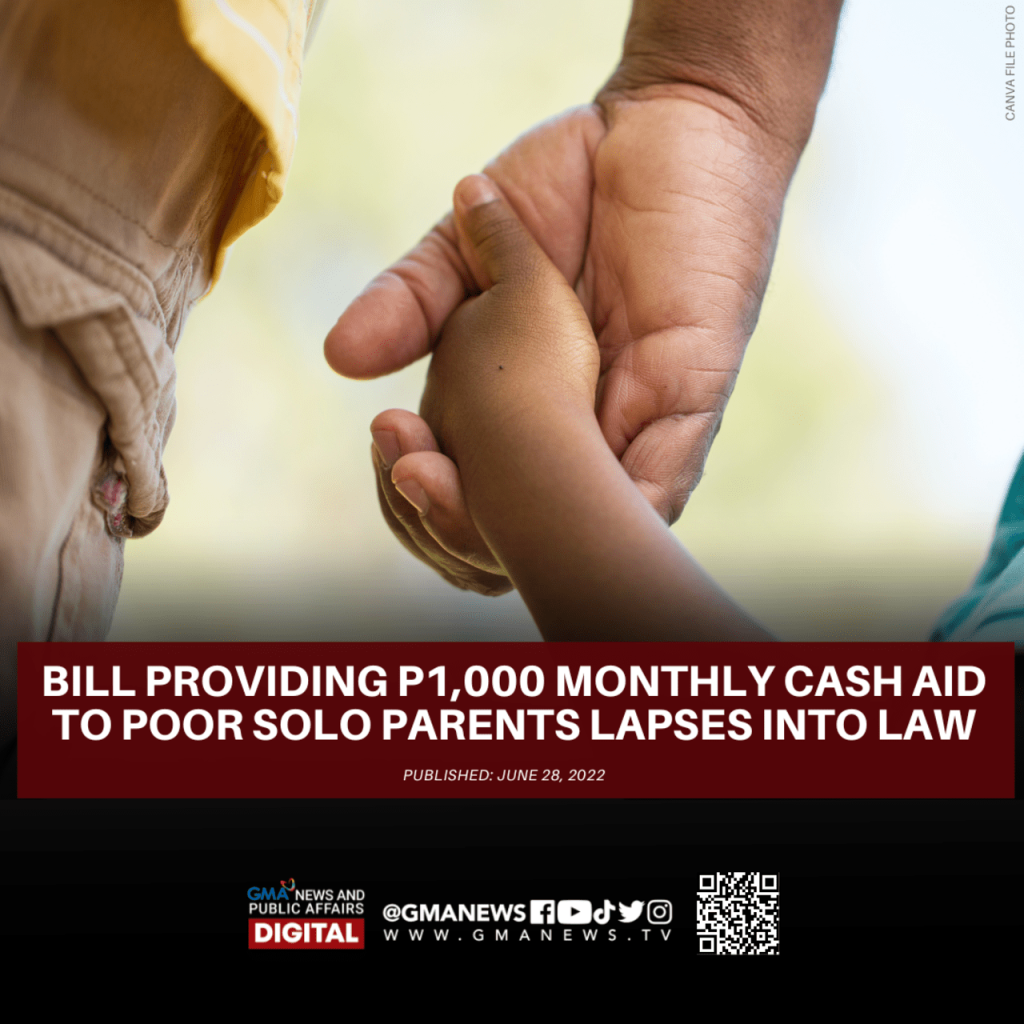
The Solo Parent Cash Assistance Program aims to support solo parents in the Philippines through financial aid. Eligible participants receive a monthly allowance of ₱1,000 to help with essential living expenses. The program addresses the unique challenges faced by solo parents, promoting their well-being and that of their children. By providing this assistance, the program seeks to enhance the quality of life for those in single-parent households.
Purpose: To help solo parents meet their basic needs and improve their overall quality of life.
Benefits:
- Monthly cash subsidy of ₱1,000 for qualified solo parents.
2. Sustainable Livelihood Program (SLP)
Provider: DSWD
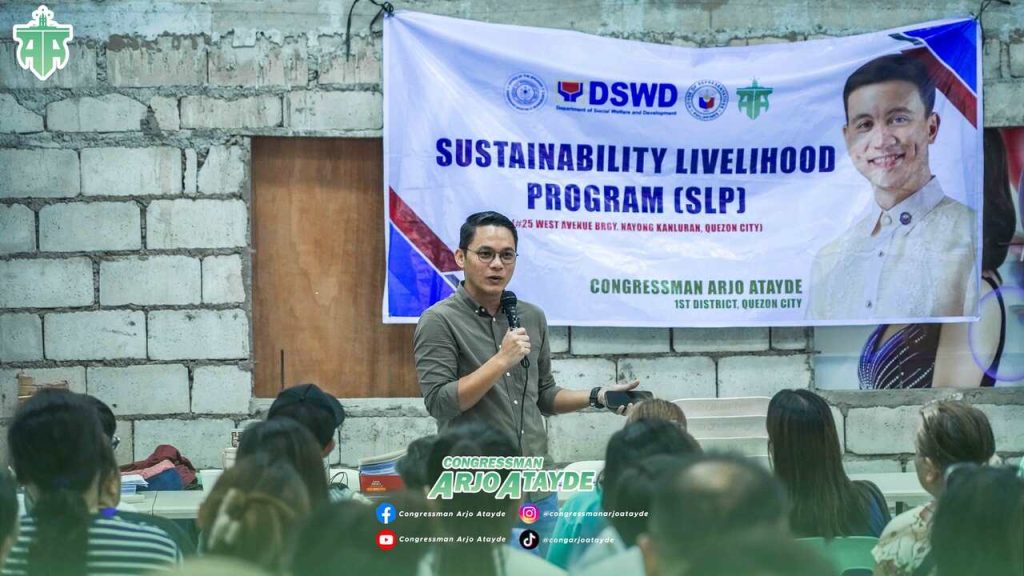
The Sustainable Livelihood Program (SLP) provides solo parents and other disadvantaged households with access to training and livelihood opportunities. It offers skills development, job placement assistance, and potential business capital through its two tracks: Microenterprise Development and Employment Facilitation. This community-based initiative aims to enhance participants’ socioeconomic conditions by supporting asset-building and job creation. The program helps households attain long-term financial stability and self-sufficiency through various support mechanisms.
Purpose: To improve the livelihoods of poor and vulnerable households by providing skills and resources for sustainable income generation.
Benefits:
- Seed Capital Fund
- Cash-for-Building-Livelihood Assets (CBLA) Fund
- Skills Training Fund
- Employment Assistance Fund
3. Pantawid Pamilyang Pilipino Program (4Ps)
Provider: DSWD
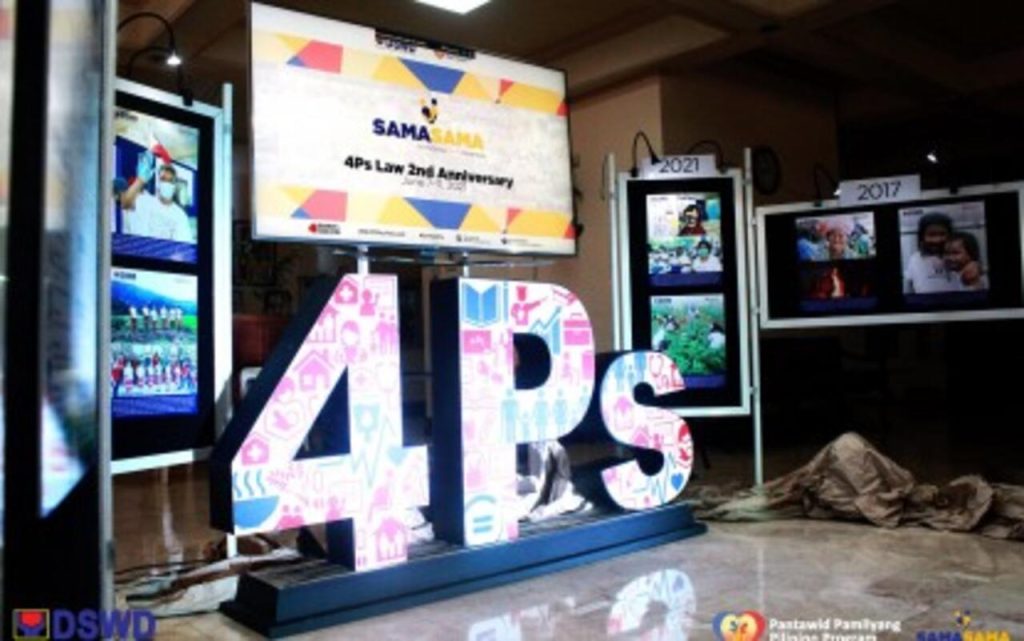
The Pantawid Pamilyang Pilipino Program (4Ps) is a conditional cash transfer program targeting impoverished families, especially those with children aged 0 to 18 years. It aims to improve the health, education, and nutrition of low-income households by providing financial aid. Beneficiaries are required to meet specific conditions, such as school attendance and regular health checkups for their children. Established in 2008 and institutionalized under Republic Act No. 11310 in 2019, the program is limited to a seven-year participation period.
Purpose: To alleviate extreme poverty by promoting human development through investments in health, nutrition, and education.
Benefits:
- ₱750.00 monthly health grant per household
- ₱300.00 per child in elementary school
- ₱500.00 per child in junior high school
- ₱700.00 per child in senior high school (up to three children for 10 months per school year)
- ₱600.00 monthly rice subsidy for eligible households
4. Study Grant Program for Solo Parents and their Children
Provider: Commission on Higher Education (CHED)
The Study Grant Program is designed for solo parents and their children, in line with Republic Act No. 7722 and Republic Act No. 8972. It offers scholarship privileges to those qualified based on the program’s criteria, allowing one beneficiary per family to receive financial assistance for tertiary education. The grant is subject to renewal every semester, provided the grantee meets the required conditions. Any change in the solo parent’s status may lead to the termination of the grant.
Purpose: To provide educational assistance to solo parents and their children, ensuring access to higher education.
Benefits:
- Scholarship for tertiary-level education
- One beneficiary per family
- Semester-based financial support
- Eligibility depends on solo parent status
5. National Health Insurance Coverage and Medical Assistance
Provider: Department of Health (DOH) and Philippine Health Insurance Corporation (PhilHealth)
Under the Expanded Solo Parent Welfare Act, single parents are automatically enrolled in the National Health Insurance Program. The national government covers the insurance premiums, sharing the cost with the employer. Solo parents also have access to health programs offered by the DOH through health centers, hospitals, and health units nationwide. These services include regular check-ups, medical procedures, and prescription medication support.
Purpose: To provide solo parents with comprehensive health coverage and access to essential medical services.
Benefits:
- Automatic health insurance coverage
- Government-paid insurance premiums
- Access to regular check-ups
- Coverage for medical procedures
- Assistance with prescription medication costs
6. Solo Parent Housing Allocation
Provider: National Housing Authority (NHA)
This program offers solo parents access to public housing projects with flexible payment terms. It is specifically designed for those earning below minimum wage, ensuring affordable housing for low-income families. Solo parents are prioritized in accordance with housing laws that give preference to applicants living under the poverty line, as identified by NEDA. Housing assistance can be requested through the NHA, with potential benefits varying based on individual circumstances.
Purpose: To provide affordable housing options for solo parents with low incomes.
Benefits:
- Access to public housing projects
- Liberal payment terms
- Priority for low-income applicants
- Financial assistance for housing costs
7. Psychosocial Services
Provider: DSWD
Psychosocial Services offer support to solo parents and their children, helping them manage their roles and responsibilities within the family and community. The program assists solo parents in overcoming emotional challenges such as grief, frustration, and loneliness. It also provides opportunities for skill-building and personal development to improve their parenting and household management abilities. By fostering resilience, the service helps solo parents access additional resources and community support.
Purpose: To help solo parents strengthen their emotional coping mechanisms and improve their ability to care for their families.
Benefits:
- Emotional support for overcoming grief and loneliness
- Parenting and role-development training
- Skills and livelihood training
- Access to additional resources and services
- Organization of community support groups for solo parents
8. Discounts and VAT Exemptions for Solo Parents
Provider: Government of the Philippines (under the Expanded Solo Parent Welfare Act)
Solo parents in the Philippines earning below ₱250,000 annually are entitled to a 10% discount and VAT exemption on specific goods. These include infant milk, baby food, micronutrient supplements, diapers, medicines, vaccines, and other essentials for children up to six years old. To avail of this benefit, solo parents must present their ID card at purchase. The discount helps reduce the financial burden on single parents, ensuring better care for their children.
Purpose: To provide financial relief to solo parents by reducing the cost of essential child-related products.
Benefits:
- 10% discount on goods
- VAT exemption
- Coverage includes infant milk, food, supplements, diapers, medicines, and vaccines for children up to six years
9. Skills Training for Solo Parents
Provider: Various government agencies (DTI, DepEd, DOLE, CHED, TESDA)
Solo parents can access livelihood programs and skills training to improve their quality of life and generate income. These programs help unemployed solo parents utilize their talents to support their families. The training focuses on essential business management and income-generating skills. Some participants may also receive assistance in finding employment or securing startup capital for a business.
Purpose: To equip solo parents with the skills and resources needed to earn a living and improve their financial stability.
Benefits:
- Business management training
- Income-generating skills workshops
- Employment assistance
- Startup capital support (for specific business ideas)
10. Demand-driven and Adaptive Key Actions for Indigent Solo Parents in Leveraging their Aspirations (DAKILA) Program
Provider: Ministry of Social Services and Development (MSSD)
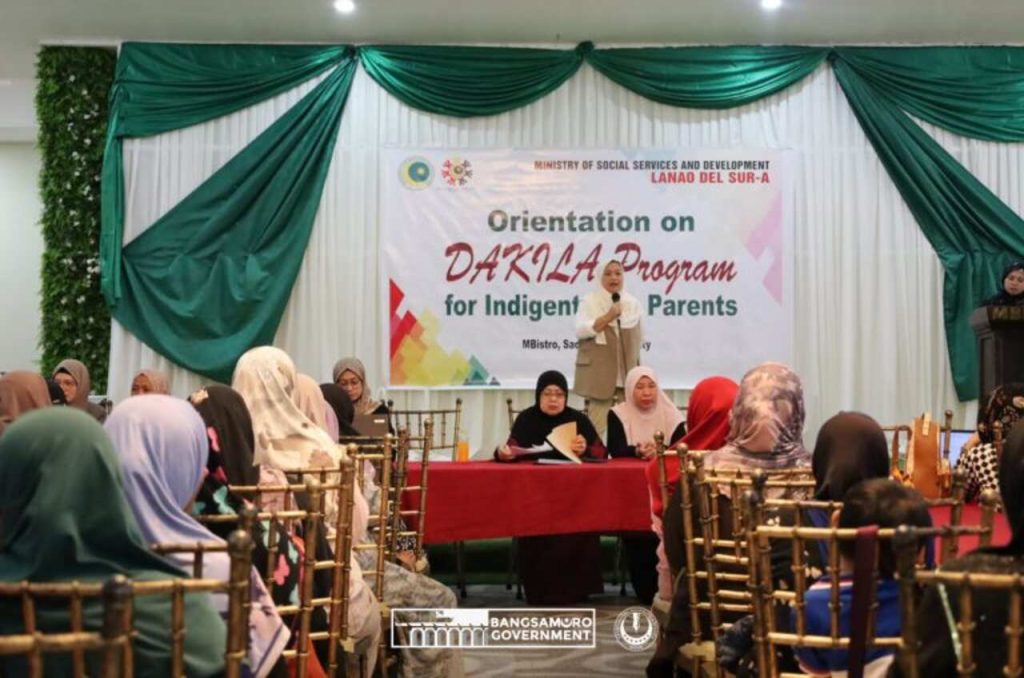
The DAKILA Program offers financial aid and social support to indigent solo parents who pass a rigorous selection process. It is focused on assisting the poorest solo parents, providing them with monthly financial assistance and other essential services. The program follows strict guidelines to ensure that only those most in need are included. Solo parents must meet specific criteria to be eligible for the program.
Purpose: To provide financial and social support to the poorest solo parents and help improve their quality of life.
Benefits:
- Monthly financial assistance
- Social support services
- Access to other relevant government programs
- Assistance based on specific individual needs
11. Livelihood Programs for Solo Parents
Provider: Local Government Units (LGUs)
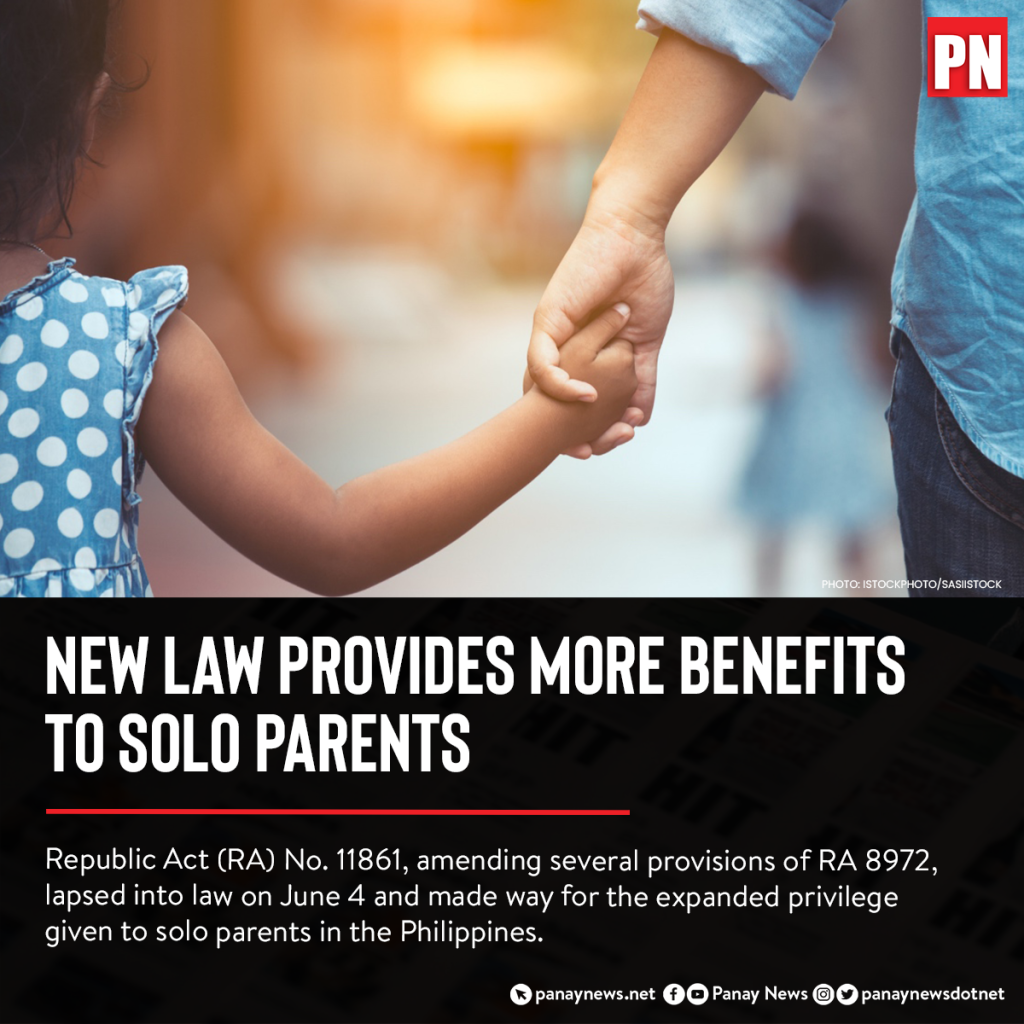
These livelihood programs aim to support solo parents in developing new skills and improving their financial situation. They provide training to equip solo parents for entrepreneurship or employment opportunities. By promoting self-sufficiency, the programs help participants build sustainable livelihoods. They also offer guidance on setting up small businesses or cooperatives.
Purpose: To economically empower solo parents through skills development and job opportunities.
Benefits:
- Skills training workshops based on market needs
- Support for starting small businesses
- Job placement assistance
- Access to micro-financing options
12. Parental Leave for Solo Parents
Provider: Department of Labor and Employment (DOLE)
This program offers solo parents an extra seven days of paid parental leave after they have completed six months of employment. It is designed to support the unique needs of solo parents by providing them with additional time off to care for their children. The initiative recognizes the challenges that solo parents face and aims to alleviate some of their burdens. By providing this leave, the program encourages work-life balance for these individuals.
Purpose: The main purpose of this program is to ensure that solo parents have the necessary support to manage both their professional and personal responsibilities.
Benefits:
- Additional seven days of paid parental leave after six months of service
- Legal assistance for solo parents facing legal issues
- Temporary shelter for solo parents in crisis situations
Video: How to Avail the Solo Parent Cash Assistance and Benefits
To learn more about how you can enjoy the cash assistance and other benefits afforded by the government to solo parents in the Philippines, you might want to watch this video from ProMagTV:
Summary
The financial assistance programs available for solo parents in the Philippines offer a comprehensive support system aimed at addressing their unique challenges while ensuring a stable environment for their children. With the implementation of the Expanded Solo Parents Welfare Act, these benefits have been further enhanced, broadening eligibility and increasing financial support, as a testament to the government’s commitment to supporting solo parents’ well-being and stability.
